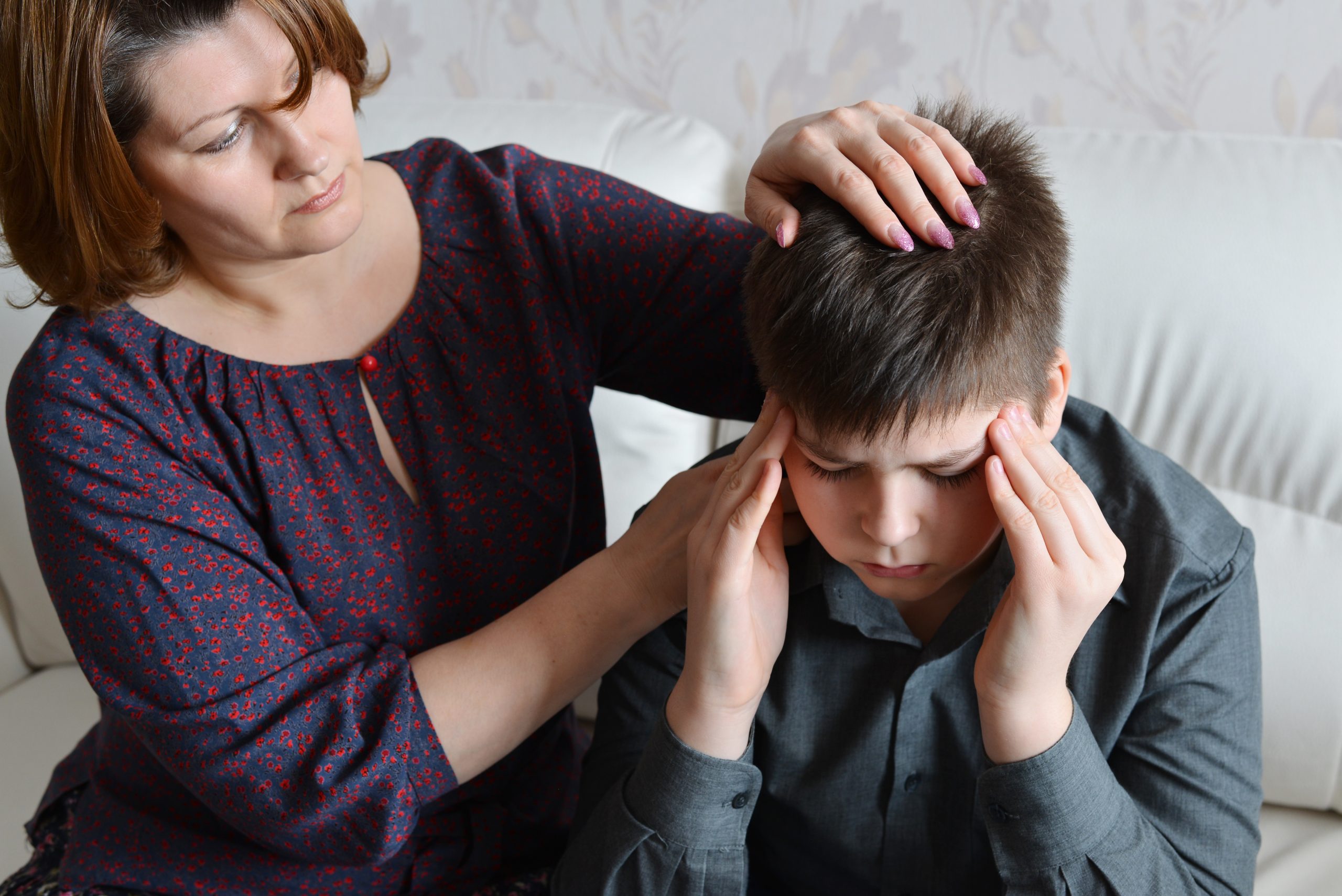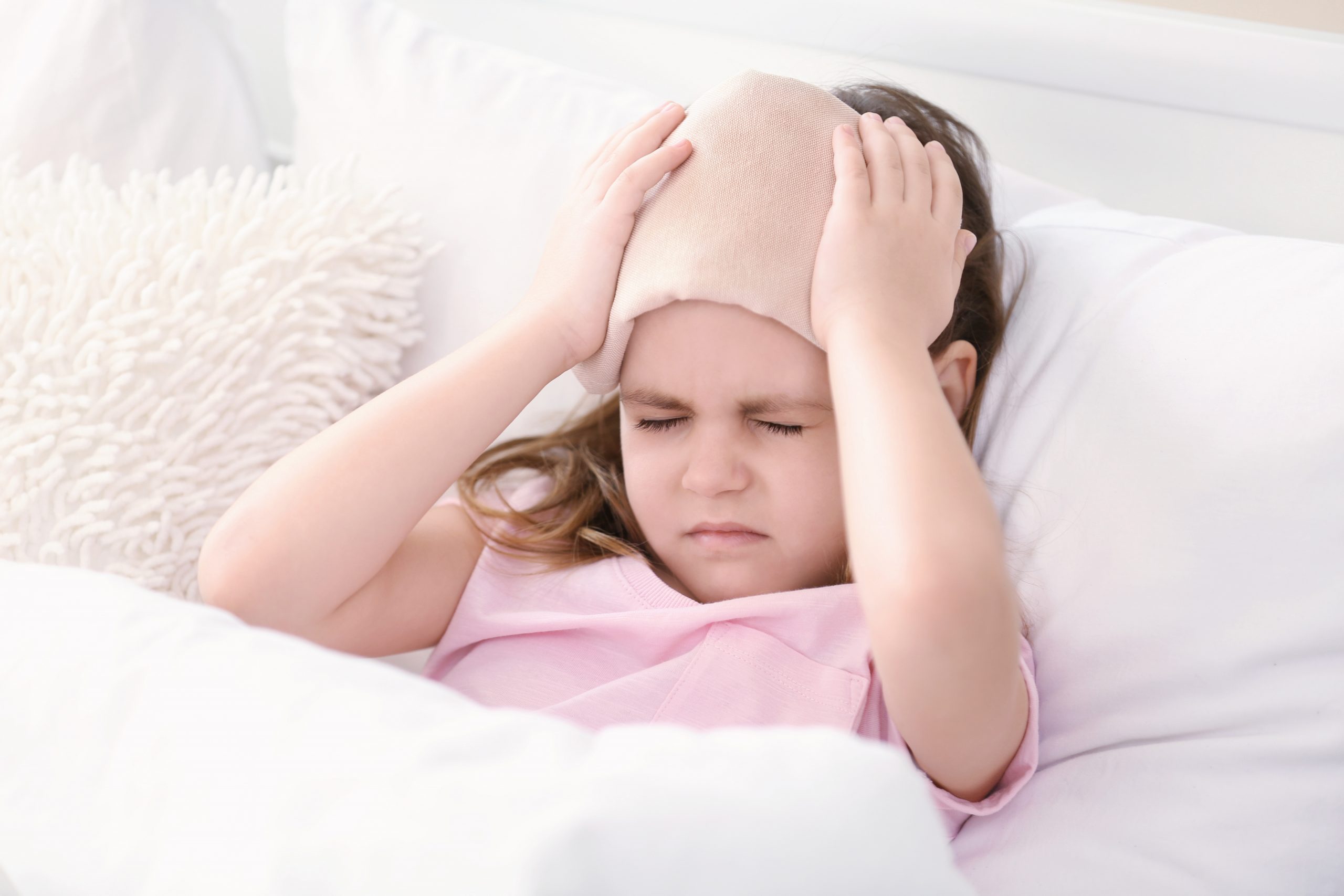Headaches: Helpful Information and Useful Resources
Headaches can be debilitating for adults, and even more so for children. There are several types of headaches. This includes vascular, muscle contraction (or tension), traction and inflammatory.
- Vascular headaches tend to include ‘cluster’ headaches that result in repeated and intense painful episodes, high-blood pressure headaches and fever-induced headaches.
- Muscle contraction (or tension) headaches usually involve a tightening of facial and neck muscles.
- Traction and inflammatory headaches tend to be symptoms of other disorders that may range from a sinus infection to a stroke.

As with other forms of pain, headaches can be a warning sign of other more severe medical conditions. This is especially true for inflammation due to meningitis. It is also true for diseases of the sinuses, spine, neck, ears, and teeth.
Primary headaches are those not caused by another illness. The most familiar type of primary headaches is a migraine. Migraine headaches are characterized by extreme pain on one or both sides of the head. Migraines may also be accompanied by an upset stomach and distorted vision.
As with other forms of pain, headaches can be a warning sign of other more severe medical conditions. This is especially true for inflammation due to meningitis. It is also true for diseases of the sinuses, spine, neck, ears, and teeth.
Primary headaches are those not caused by another illness. The most familiar type of primary headaches is a migraine. Migraine headaches are characterized by extreme pain on one or both sides of the head. Migraines may also be accompanied by an upset stomach and distorted vision.

Treating Headaches
If your child experiences a headache three or more times a month, then preventive treatment is necessary. Some of the methods of preventing and controlling headaches include:
- Drug therapy
- Biofeedback training
- Reducing stress
- Eliminating certain foods
- Regular exercise (such as swimming, and vigorous walking)
Drug therapy is usually combined with biofeedback and relaxation training. Some of the medications that are used to prevent headaches include:
- Sumatriptan (for pain relief)
- Methysergide maleate (blood-vessel relaxant)
- Propranolol hydrochloride (reduces the frequency and severity of headaches)
- Ergotamine tartrate (counteracts the painful dilation of blood vessels)
- Amitriptyline (antidepressant)
- Valproic acid (anticonvulsant)
- Verapamil (a calcium channel blocker)


Headaches Prognosis
Some headaches don’t need extensive medical attention. But they may still point to more severe health conditions that need remediation. Some of the headaches and occurrences that may signal such disorders are:
- Sudden, severe headaches
- Headaches with pain in the eye or ear
- Sudden headaches with a stiff neck
- Fever-fueled headaches
- Headaches after head trauma
- Convulsions
- Headaches accompanied by confusion or loss of consciousness
- Persistent, unusual headaches
- Recurring headaches
Headaches Prognosis
Some headaches don’t need extensive medical attention. But they may still point to more severe health conditions that need remediation. Some of the headaches and occurrences that may signal such disorders are:
- Sudden, severe headaches
- Headaches with pain in the eye or ear
- Sudden headaches with a stiff neck
- Fever-fueled headaches
- Headaches after head trauma
- Convulsions
- Headaches accompanied by confusion or loss of consciousness
- Persistent, unusual headaches
- Recurring headaches

Accessing Healthcare
for Headaches
If your child often complains of headaches, or other symptoms, then you need to take action. Please feel free to contact us today for an initial consultation. Family Neurology has several specialists who are able to diagnose and treat your child’s headaches, as well as any underlying conditions that may be discovered. We will work with you and your child to restore his/her health and overall wellbeing.


Headaches Resources
Research Institutions
The National Institute of Neurological Disorders and Stroke (NINDS) does research to improve the diagnosis of headaches. They also research into how to prevent and treat them and any underlying conditions. They also provide grants to major medical institutions across America.
Organizations
American Headache Society Committee for Headache Education (ACHE)
This is a nonprofit patient-health professional partnership. It promotes the treatment and management of persons with headaches.
Migraine Research Foundation
This foundation helps persons with migraine through giving them information and support. It also fundraises for innovative research into the causes of migraines. Finally, they also advocate for better treatments of this condition.
National Headache Foundation
This non-profit organization helps headache sufferers, their families and medical professionals. It promotes research about the causes and treatments of headaches. It also educates the public about headaches.
Headaches Resources
Research Institutions
The National Institute of Neurological Disorders and Stroke (NINDS) does research to improve the diagnosis of headaches. They also research into how to prevent and treat them and any underlying conditions. They also provide grants to major medical institutions across America.
Organizations
American Headache Society Committee for Headache Education (ACHE)
This is a nonprofit patient-health professional partnership. It promotes the treatment and management of persons with headaches.
Migraine Research Foundation
This foundation helps persons with migraine through giving them information and support. It also fundraises for innovative research into the causes of migraines. Finally, they also advocate for better treatments of this condition.
National Headache Foundation
This non-profit organization helps headache sufferers, their families and medical professionals. It promotes research about the causes and treatments of headaches. It also educates the public about headaches.

Call Us to Make an Appointment
Phone: 713-589-7020
Fax: 713-999-9095
3301 Plainview St, Suite 8
Pasadena, Texas 77504

